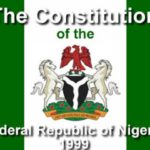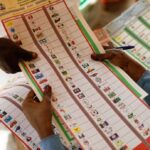By: Murkthar Muhammad Suleiman
Consumer behaviour plays a crucial role in shaping economic policies, and this holds true for Nigeria, a nation currently facing numerous economic challenges. As we continue to recover from the adverse effects of COVID-19, the elections cycle has further complicated matters, and the poorly implemented naira redesign policy by the CBN has brought economic activities to a halt.
As the new government grapples with the costs of the current challenges faced by Nigeria and its citizens, it is important for the people to understand that their reactions to government policies can either ensure the success or failure of such policies. This article does not debate the merits of the fuel subsidy removal policy but rather examines how consumer behaviour affects its implementation.
Consumer behaviour is a crucial aspect of socioeconomic activities, particularly in Nigeria due to its large population, diverse cultural backgrounds, and unique market dynamics. Consequently, poor consumer behaviour significantly impacts any socioeconomic policy rolled out by the Nigerian government in the coming days.
The removal of fuel subsidies has been a contentious issue with far-reaching implications for the Nigerian economy. Despite the topic having been debated for a long time, President Bola Ahmed Tinubu has consistently expressed his stance on fuel subsidies. During one of his campaign trails, he emphasized that fuel subsidies must be removed, regardless of protests. In his inaugural speech on May 29th, President Tinubu unequivocally announced the removal of the subsidy. However, the success of the policy implementation process depends on the reaction of the people.
The Nigerian consumer market often exhibits a capitalist mentality and mob reactions to almost everything. For instance, when the naira redesign policy was announced in the past, Nigerians responded poorly by hoarding and selling the currency. From bankers who sold notes to POS operators who inflated their service charges, consumer behaviour exacerbated the situation.
The Nigerian government’s decision to remove fuel subsidies aims to address fiscal challenges and promote economic sustainability. However, poor consumer behaviour can hinder the successful implementation of such policies and have detrimental consequences for the economy. Price volatility is one adverse effect of poor consumer behaviour. Panic buying and hoarding driven by fear and uncertainty can lead to artificial scarcity and price hikes, disrupting the market and causing temporary supply disruptions and price fluctuations that impact overall economic stability.
Another consequence is inflationary pressure resulting from poor consumer behaviour. The sudden surge in demand for fuel following subsidy removal can drive up prices not only in the fuel market but also in related sectors. This inflation erodes purchasing power and negatively affects the overall economy, making essential goods and services less affordable. This relationship between demand and price is a basic economic principle.
Social unrest and protests are further manifestations of poor consumer behaviour in response to economic policy changes. The fuel subsidy removal announcement triggered public outcry and may lead to demonstrations in Nigeria. Such unrest disrupts economic activities, hampers investor confidence, and challenges the government’s ability to implement effective economic policies. Considering that the current government is new, it is important to give them a chance to fulfill their duties, even if they may fail at times.
The question remains: what can be done to address poor consumer behaviour?
Addressing poor consumer behaviour requires a collaborative effort between the government and citizens. Consumer education and awareness campaigns are essential to enlighten citizens about responsible behaviour and the rationale behind economic policy changes. Understanding the long-term benefits of market-driven prices is crucial. However, the abrupt announcement by the President was a poor approach considering the dynamics of the Nigerian market. The government must ensure immediate communication strategies that explain why short-term suffering may be necessary for long-term rewards.
In addition, strengthening consumer protection measures is vital. The government needs to empower consumer protection agencies to enforce fair market practices and safeguard consumer rights. By addressing issues such as price manipulation, fraud, and anti-competitive behaviour, these agencies can foster transparency and accountability.
Engaging stakeholders is another crucial step, although it can be challenging due to the vested interests among stakeholders, which has previously been a bottleneck in fuel subsidy removal. However, stakeholder engagement cannot be overlooked. Consumer advocacy groups, industry associations, and media outlets should participate in fostering dialogue and collaboration. These stakeholders can promote responsible consumer behaviour, disseminate accurate information, and address concerns through constructive engagement.
Price monitoring and regulation are necessary to address price volatility. The government should establish effective systems to track market dynamics and deter unfair practices. Regular monitoring and enforcement will help maintain reasonable price levels and prevent market distortions caused by poor consumer behaviour.
Regardless of whether the fuel subsidy removal is beneficial or not, it is crucial for Nigerians to understand that mob reactions are often detrimental to the policy implementation process. We cannot be our own enemies. Nigerians who take advantage of their fellow citizens during these difficult times need to reflect upon their actions. The truth is, we all anticipated the removal of fuel subsidies. The question was not if it would happen, but rather when it would occur.
Suleiman sent this piece from Abuja

 Join Daily Trust WhatsApp Community For Quick Access To News and Happenings Around You.
Join Daily Trust WhatsApp Community For Quick Access To News and Happenings Around You.


